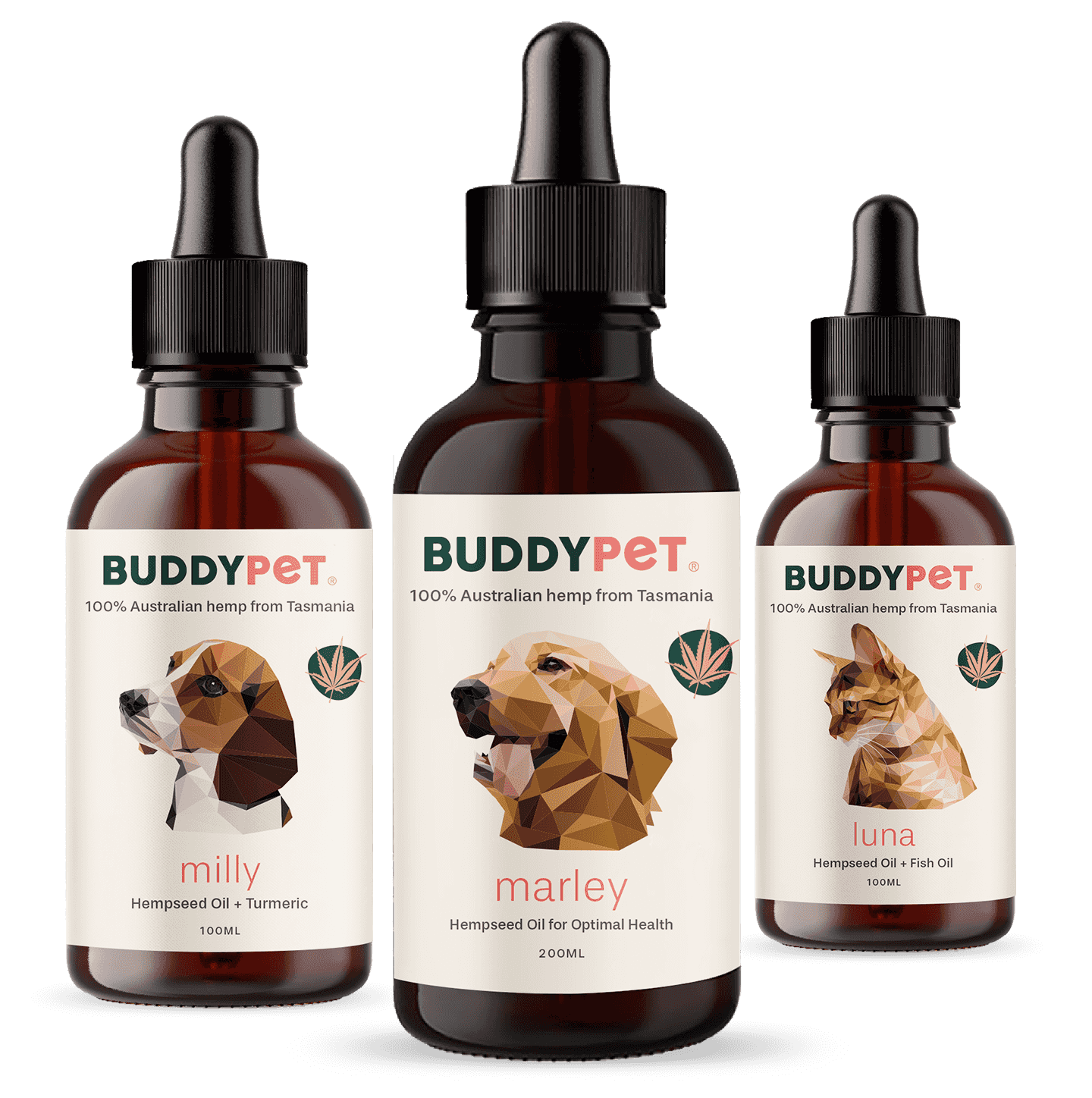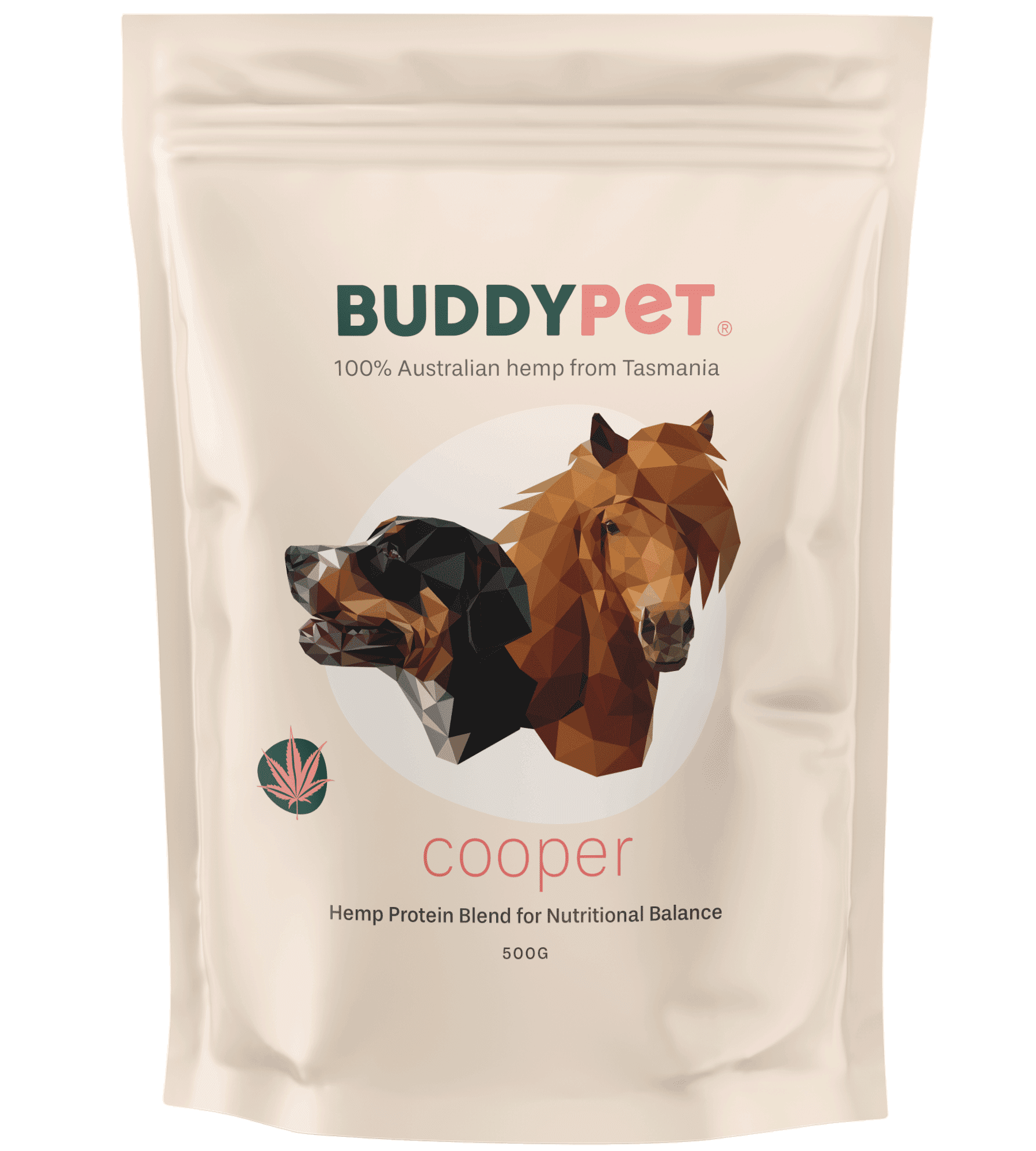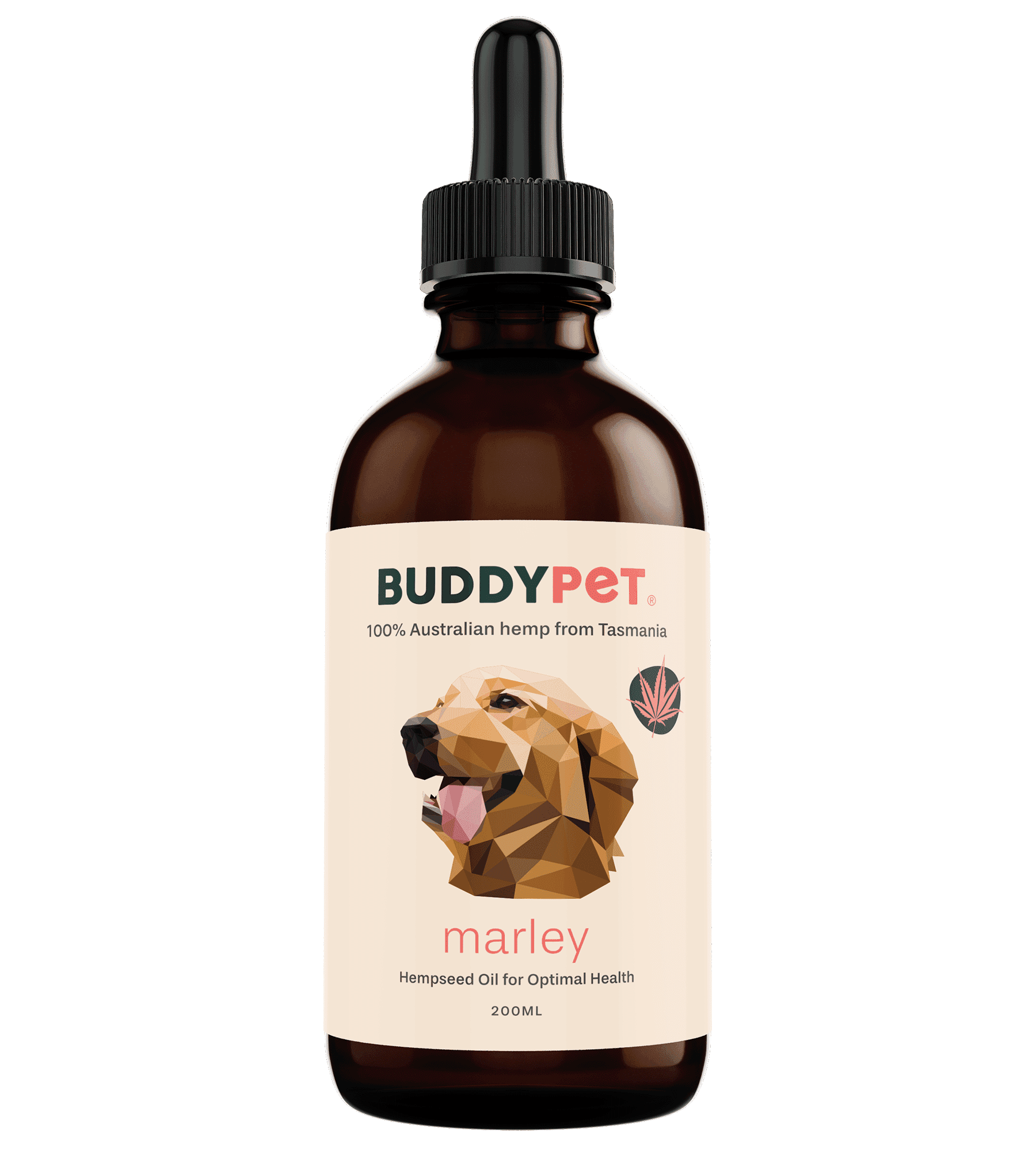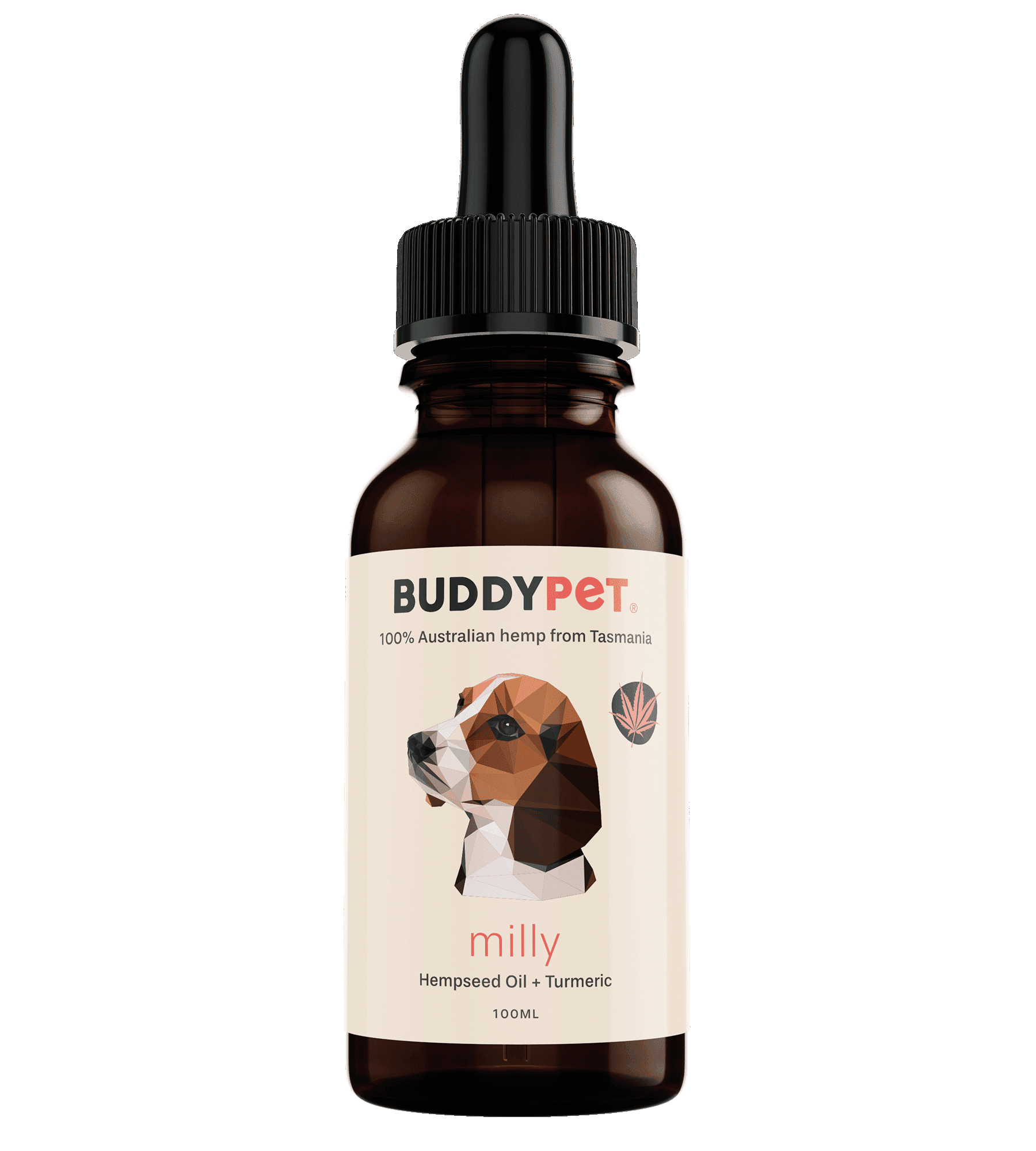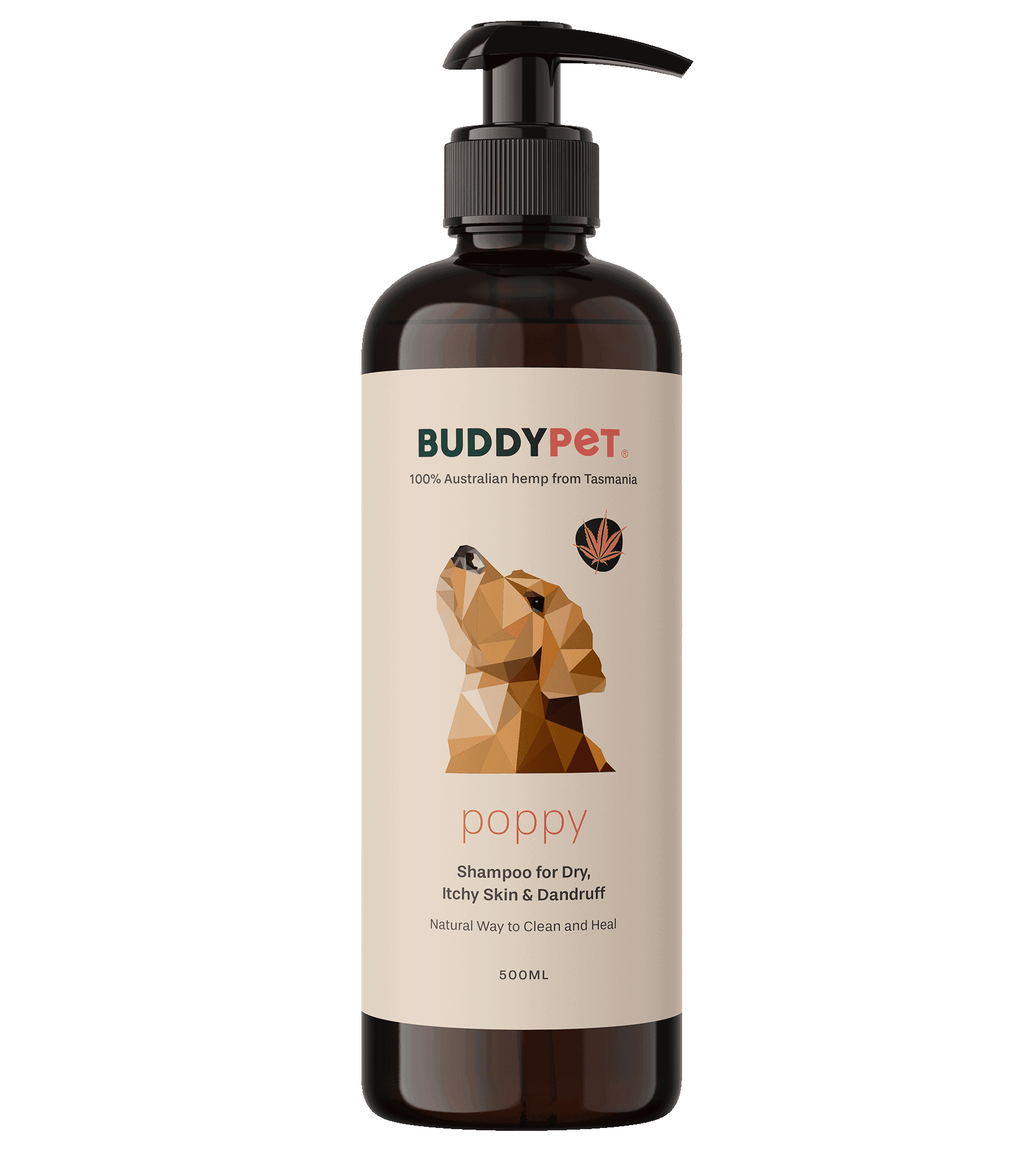There can be many reasons why your pooch feels itchy and scratches all day long, but one of the most common causes is a frustrating immune-mediated inflammatory skin disorder called atopic dermatitis.
Thankfully, we’ve seen significant advancements in the last decade in the scientific understanding of the underlying causes of atopic dermatitis and how to help manage this inflammatory skin condition, such as prescription medications or even hemp seed oil. Read on to find out more!
What Is Atopic Dermatitis?
Atopic dermatitis, or atopy for short, is essentially an overreaction by the immune system to something in the environment, resulting in skin inflammation and itchiness, then subsequent excessive chewing, licking, and scratching of the body. The immune reaction is usually directed at:
- environmental allergens (pollen, dust mites, mould, grass, toxins, etc.),
- food allergens,
- microbial colonisation with Staphylococcus or Malassezia.
Dogs can develop these immune overreactions at any time. Most older dogs will show symptoms throughout their youth, but they may become more severe as they age.
What Are the Signs of Atopic Dermatitis in Dogs?
Each dog and their immune response are different. Some pets will only show mild symptoms of occasional itch, while others will have far more severe symptoms like large, itchy, and painful rashes, hives, and more.
The symptoms (common and uncommon) of atopic dermatitis are:
- Generalized and excessive itch (can be isolated to the paws, belly, armpits, or groin area)
- Recurring, secondary infections of the skin (bacteria or yeast)
- Red rashes or “hotspots”
- Bumps, hives, or scabs on the skin
- Hair loss
- Thickened, dark skin
- Light-colored fur will become red or brown where they are frequently licking (paws, groin, or butt area most commonly)
- Ear and eye infections
It is crucial to watch for any of these symptoms, as addressing allergies (immune reactions) sooner rather than later can save your dog a lot of discomfort and save you some money!
What Causes Atopic Dermatitis in Dogs?
Typically, whatever is causing a dog’s allergic response is something very common and relatively harmless. Allergens like pollen, grass, trees, mould, mildew and dust mites are most often the culprit.
In many cases, a dog with chronic gut inflammation will show symptoms of atopic dermatitis.
One proven connection to gut health is the imbalance in the gut microbiome when there are too many “bad” species (bacteria), not enough “good” species, and not enough diversity of species. A microbiome that lacks in the population of good bacteria and biodiversity is pro-inflammatory: it will foster rather than fight chronic inflammation in the gut.
Chronic inflammation will cause damage to the lining of the gut, eventually leading to impairment of the gut barrier (aka leaky gut). The damaged gut barrier will allow the different bacteria, fungi, and other microorganisms to pass into the bloodstream, creating inflammation far beyond the digestive tract. And one place where we see the impact of this issue is the skin. Whatever is on the inside is also on the outside.
How Do You Treat Atopic Dermatitis in Dogs?
There are several options for the treatment of atopic dermatitis in dogs. But first, it is important that your dog is examined by a veterinarian and diagnosed with atopic dermatitis before you proceed with your own therapy and treatments at home.
To help your dog with an over-reactive immune response to allergens, you could look at immunotherapy and anti-histamines, avoid the allergen and try hemp (CBD) or hemp seed oil. The anti-inflammatory action of the fatty acids and antioxidants in hemp seed oil can help manage the symptoms of atopic dermatitis. At BUDDYPET, we recommend Marley – 100% raw, organic, cold-pressed hemp seed oil from Tasmania. For dogs that suffer from atopic dermatitis due to gut inflammation, we recommend BUDDYPET Milly. The turmeric in Milly can help tame the inflammation involved in intestinal inflammatory diseases, thus improving intestinal barrier function and, ultimately, skin function.
Steroids
These days, steroids are generally not a Vet’s first medication of choice unless the pet’s skin is so severely itchy and inflamed that steroids are their only option to provide quick relief. If steroids have been used in the short term, the dog should be maintained with something other than steroids in the long term, as they can have severe and life-long side effects with chronic use. Some newer drugs have a similar effect to steroids, without the side effects – ask your Vet about the options.
Avoiding The Allergen
In most places with grass or trees, it isn’t really possible to “avoid” the allergen. If your veterinarian thinks it will help, they will suggest bathing your dog regularly to wash off any allergen proteins that could have gotten on their skin or fur. Try BUDDYPET Poppy, 100% natural and hypoallergenic hemp shampoo for dogs with inflammatory skin conditions. The hemp seed oil in Poppy will help itchy, irritated skin by boosting your pet's first line of defence, the skin barrier. Hemp's skin-loving vitamins and essential fatty acids can be particularly helpful in easing the symptoms of atopic dermatitis.
Anti-Inflammatory Antibody Injections
Newer treatments such as anti-inflammatory antibody injections are now available to help stop inflammation before it starts. Because these are not drugs per se, there are few long-term side effects.
Specific Allergen Immunotherapy
Immunotherapy is a practice that is used in humans as well. Those with severe allergies are tested to see what triggers their unwanted immune response. After the results are interpreted, they are given a vial of diluted allergens that can be given to desensitise their body, eventually leading to prolonged periods of healthy and happy skin.
Atopic Dermatitis: How You Can Help Your Dog’s Itchy Skin
Upgrade Your Dog’s Nutrition
Nutrition plays a crucial role in overall skin health. Work with your vet to determine the underlying cause of their atopic dermatitis. Once you figure out what your dog is allergic to, you can create a healthy diet full of quality ingredients that are easy on your dog’s digestive system. Consider adding BUDDYPET Cooper (hemp protein) to their diet to help restore gut health.
The beneficial effects of hemp seed oil come full circle as it starts by reducing inflammation in the gastrointestinal tract to support and improve skin health. By fixing the gut, you fix the skin.
Change your bathing and grooming products to 100% natural. Standard stock products will smell nice and foam well, but that usually comes at the cost of including parabens and sulphates that are okay for healthy pets but may be irritant for pets with inflammatory skin conditions like atopic dermatitis. If you take your dog to a grooming salon for a wash, ask them about their products. If they use natural products, ask for a list of ingredients and a COA (certificate of analysis) to confirm their products are indeed 100% natural.
The recommended routine for dogs with aggressive atopic dermatitis and bacterial infection is bathing weekly. You might have to use a medicated shampoo initially in case of bacteria or yeast over colonisation, but these can cause drying of the skin if used too frequently and may worsen the problem if used incorrectly. Ask your vet to help you choose the right shampoo product for your dog as you can do more harm than good by using the wrong product.
If your dog has a persistent itch that’s not going away, schedule a vet appointment as soon as possible. A good understanding of the underlying cause will help develop a tailored treatment plan with the proper diet, dietary supplements, and skincare products to keep their skin clean, hydrated, nourished, and protected, with prescribed treatments as needed.
For more information on inflammatory skin conditions, read Sensitive skin, Allergies, or Atopic Dermatitis?
Photo by Lucie Helešicová on Unsplash

